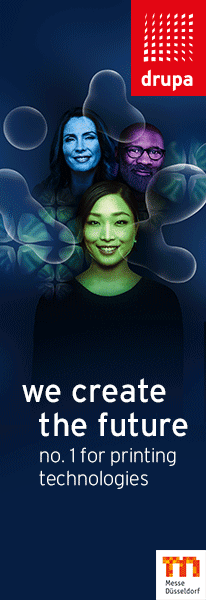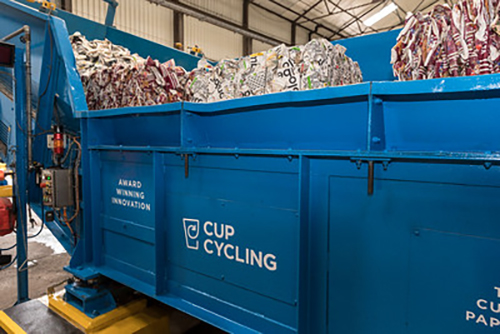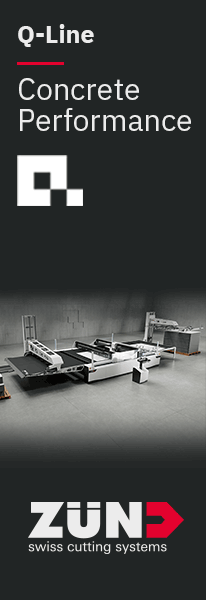James Cropper, who have helped to develop technology to upcycle used coffee cups, can now recycle both the waste plastic as well as the paper from each disposable cup. The news comes as James Cropper bolsters its own sustainable credentials by reducing the amount of packing material used by the business.
Until now, the 5% of waste plastic that is removed from each cup was being used as a source for energy recovery in the production of recycled paper. However, working with partners, Cumbria Waste and New Horizon Plastics in North Wales, recycling the waste plastic into new plastic products has been made possible – the preferred end of life option based on Life Cycle Analysis – giving the entire cup a second life.
The plastic is made into pellets – the most common and efficient plastic recycling process – and then given a second life, most likely in commercial packaging and agricultural applications. Meanwhile, the high quality paper fibre from the cup is made Into new paper products and premium packaging. The latest technological advance means the Cumbrian papermaker has closed the loop on its CupCycling technology.
Rob Tilsley, Fibre Operations Group Leader, James Cropper, says, “Recognising value in the high quality fibre used to create paper cups, we were inspired to convert this enormous waste stream into a value stream instead, and now we’ve taken it even further. Working with our local waste management partner, Cumbria Waste, we have been relentlessly exploring sustainable opportunities where the cup plastic can be recycled or reused locally. Following extensive trials, New Horizon tested and approved the plastic waste, which is separated from cups during the CupCycling process, and it is now collected by Cumbria Waste and recycled by them in North Wales. New Horizon Plastics, one of the best plastic reprocessing companies in the UK, has the capability to shred, wash and turn the cup’s waste plastic into pellet form. Processing around 155 tonnes of plastic every day, the clean plastic pellets eventually end up in a range of products such as bags and wraps to plastic gates, animal pens and grain stores.”
The latest CupCycling development comes as the paper mill bolsters its already impressive sustainable capabilities with another development. James Cropper has commissioned new commercial packaging, that protects paper from moisture ingress during transport, with 30% recycled content. The new wrap has a high stretch percentage which has also enabled the papermaker to reduce the amount of protective plastic packaging it uses, by a third. The papermaker is already on its way to increase the recycled plastic content of the wrap to 50% – exceeding the 30% requirement set by the plastic tax which came into force in April 2022.
Tilsley continues, “This work is the result of some fantastic collaborations with partners that have helped us achieve our pledge to the Ellen MacArthur Global Commitment to work to accelerate the transition to a more effective circular economy. From the world’s first technology to upcycle used coffee cups to the industry leading incorporation of used jeans into fully recyclable paper for packaging – transforming waste into beautiful paper and packaging is at the heart of our fibre blending expertise. Our FibreBlend Upcycled Technology team is focused on perpetual sustainable fibre innovation, and these new developments further solidify our commitment to offer better.”
The news follows the delay of a mandatory paper cup takeback scheme by Defra, something the Foodservice Packaging Association believes could have a negative impact on the growth of retailer support and participation.




